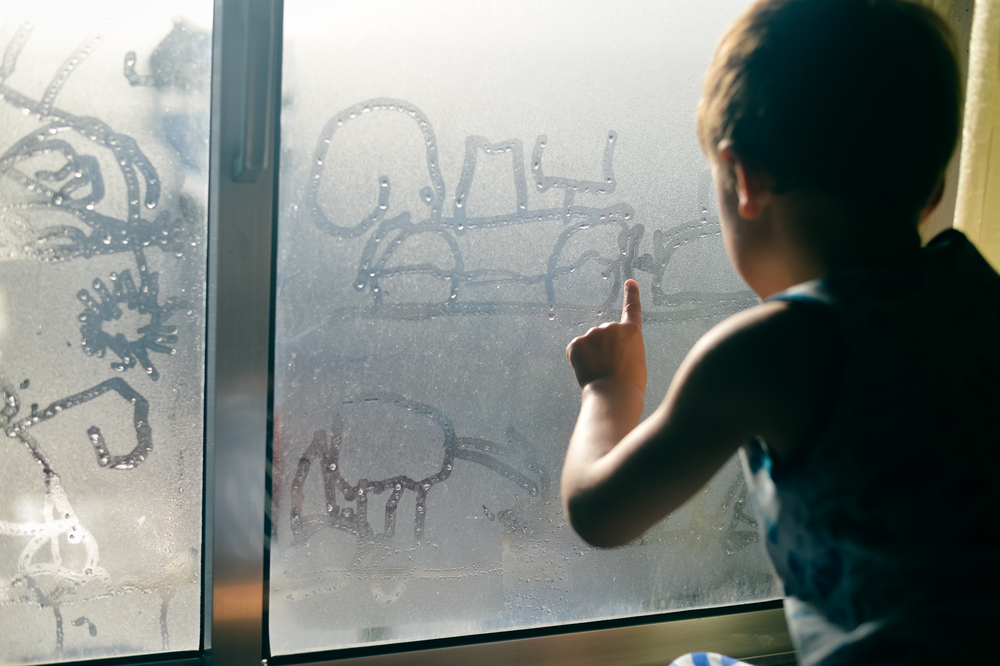I’ve been alarmed by recent reports about how COVID-related restrictions are affecting the mental health of children, both as a psychologist and as a parent of young kids. These reports are even more troubling in light of research on risk factors for conditions like anxiety and depression.
The risk for developing a psychiatric condition rises sharply for young people who experience social isolation between ages five and eleven—which describes nearly every kid in this age group over the past many months. Additional risk comes from experiencing emotional difficulties during the primary school years, which likely includes countless kids who have been dealing with the fallout of the COVID shutdowns.
What Can Parents Do?
1. Don’t Panic
First, there’s no need to panic. I know it can be frightening to imagine our kids struggling through anxiety or depression. But we can maintain our equilibrium even as we take these risks seriously. Kids truly are resilient, and any challenge is an opportunity to grow stronger and develop better coping skills.
The truth is, most of our children—more than four out of five— will experience a psychiatric condition at some point in their lifetime, based on the most robust studies of psychiatric epidemiology. That doesn’t mean they can’t have a rich and rewarding life. I’ve seen the proof in countless men and women I’ve treated, and also through my own experiences of major depression.
2. Open a Conversation
Moms, dads, and other caregivers can play an invaluable role in speaking openly about the importance of mental and emotional health. Through our example we can demonstrate to our kids that it’s okay to be honest about our struggles.
3. Tend to Your Own Mental and Emotional Health
We can also model healthy self-care during this time. The study mentioned above found that having close relatives with a psychiatric condition raised the risk for later mental health issues among young people. There are multiple factors involved—like having similar genes—but tending to our own mental health is good not only for us but for our children and other loved ones.
4. Encourage Healthy Habits for Mind, Body, and Spirit
Parents play a crucial role in supporting their kids’ mental health. The National Organization of School Psychologists underscores the role that parents can play during this time. Research studies have shown that three skills—abbreviated Think, Act, and Be—are especially important for the well-being of children and adults alike. (The practices below are adapted from The CBT Deck for Kids & Teens .)
Exercises to Try
THINK: Working with Thoughts
Not everything our minds tells us is true. Be on the lookout for false claims, like “Nobody likes you” or “You’re going to fail.” We often mistake these thoughts for reality, even if there are no facts to back them up.
Practice: How Bad Would It Be?: Sometimes our brains tell us something REALLY BAD is going to happen. But the reality is that it usually won’t be as bad as we fear. It will just be a challenge we can deal with. So if you’re worrying about something today, picture yourself taking care of whatever it is. Remember that you are built to solve problems.
ACT: Planning Actions
There are countless ways to take care of ourselves during the pandemic, like getting outside and seeing friends as much as possible (with appropriate precautions). Find a way to do life-giving activities every day, including activities of daily living. The familiarity of simple rituals like bathing and doing chores can provide grounding and reassurance.
Practice: Spend Time Outside: Our bodies and minds naturally relax when we connect with nature. Look for ways to be outside today, like playing in your yard, going to a park, or having a picnic. Use your senses to take in what’s around you. See the sky. Smell the air. Feel your feet on the ground. Hear the birds. Notice how it feels to be in nature.
BE: Being Present
Practicing mindfulness is known to reduce stress and help with managing anxiety or depression. Mindfulness practice can include meditation, but there are endless ways to engage mindfully in our lives. The key is simply to bring awareness to this very moment, as we drop our judgments of it as “good” or “bad.” Reclaim your attention from the past and future, and direct your energy into the present. Come home to yourself, exactly where you are.
Practice: Still Water Meditation: Close your eyes and imagine a large lake. The top of the water is choppy, but deep below, it’s calm and still. Take a few slow breaths. Feel yourself drop down into that stillness, beneath the wind and waves. There’s a similar place of peace and quiet deep inside you. You can always return to that place when you’re feeling angry or afraid.
Working on one of these skills can help with the other two. For example, a practice like the Still Water Meditation can help put the brakes on catastrophizing, when we assume something terrible is going to happen. In the same way, finding a feeling of peace in the outdoors can make it easier to practice mindful presence.
As we help our kids overcome negative thinking, manage stress, and find moments of peace, we won’t just be helping them to navigate difficult emotions. We’ll be helping them build coping skills that will last a lifetime.
The original version of this article was originally published on Psychology Today by Seth J. Gillihan Ph.D.
At LCC we have a dedicated and highly skilled team ready to help you and your children. To find a therapist, get in touch with us.





